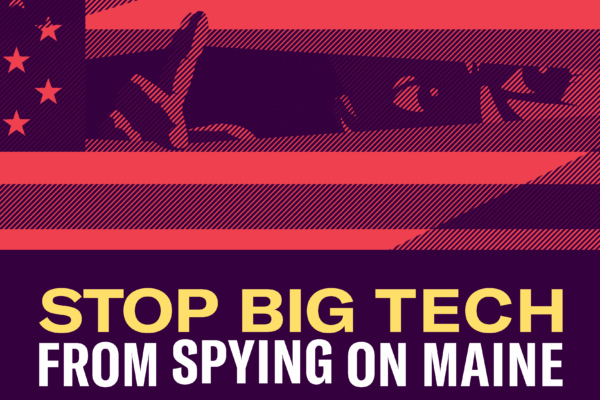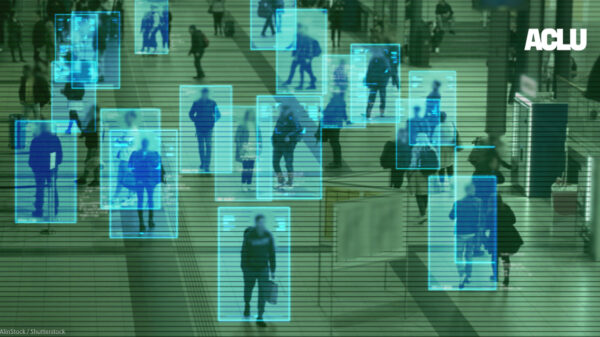The legislation would implement sensible guardrails to ensure Maine consumers can choose how their data is used, protect civil rights, and limit undue government surveillance.
AUGUSTA – The Joint Standing Committee on Judiciary will consider LD 1822 on Monday, May 5, to empower Mainers to choose when and what personal data they share. ACLU of Maine Policy Director Michael Kebede and Policy Fellow Alicia Rea will testify in support of LD 1822 and against LDs 1224, 1088, and 1284 during the 10 a.m. public hearing in State House room 438. Watch live here.
"The world's largest tech companies gather, sell, analyze, and exploit our most personal data for their own financial gain,” said ACLU of Maine Policy Director Michael Kebede. “Corporations have created a surveillance-driven economy, harvesting people's most sensitive data and selling it – often without their knowledge or consent – to anyone willing to pay, including the government. This risks our freedom, safety, exacerbates inequality, and threatens our democracy.”
“Data privacy isn’t about secrecy,” continued Kebede. “It’s about control. Without sensible guardrails, our most personal information is available to the highest bidder. Even the government can bypass the Fourth Amendment to spy on us. Personal data can be used to track people at protests, political rallies, places of worship, and family planning clinics. Maine lawmakers have led the country in protecting people’s privacy. They have the opportunity to continue that work today, rather than passing the same bills written by and for Big Tech that have been enacted into law in some other states.”
LD 1822 would empower Maine consumers in four key ways:
- Limiting Data Collection and Storage: Tracking systems are built into nearly every website and app, collecting information about your every click, search, and action across the web, across apps, and across devices – whether you give them consent or not. “Data minimization” requirements in LD 1822 would allow companies to collect only the information necessary to provide a good or service.
- Protecting Civil Rights: Tech giants are increasingly feeding our data to algorithms to make automated decisions about hiring, offering loans, accepting students, and more. This brings discrimination into the digital age. LD 1822 would make sure technology is not used to discriminate.
- Safeguarding Biometrics: People must be able to protect their most sensitive information. When hackers steal your fingerprint, you cannot reset it like a password or replace it like a credit card. It cannot be undone, creating a lifelong security risk. LD 1822 would prohibit companies from collecting biometrics unless it is strictly necessary to provide the requested good or service.
LD 1822 is not perfect. It would not apply to companies that process the data of fewer than 35,000 Maine residents. It does not include a private right of action. This means that Mainers must rely on the Attorney General to enforce their rights under the bill. These compromises represent a middle-ground between no data privacy protections and the strongest possible protections. This compromise has been law in Maryland since last year.
Stay Informed
Sign up to be the first to hear about how to take action.
By completing this form, I agree to receive occasional emails per the terms of the ACLU’s privacy statement.
By completing this form, I agree to receive occasional emails per the terms of the ACLU’s privacy statement.



